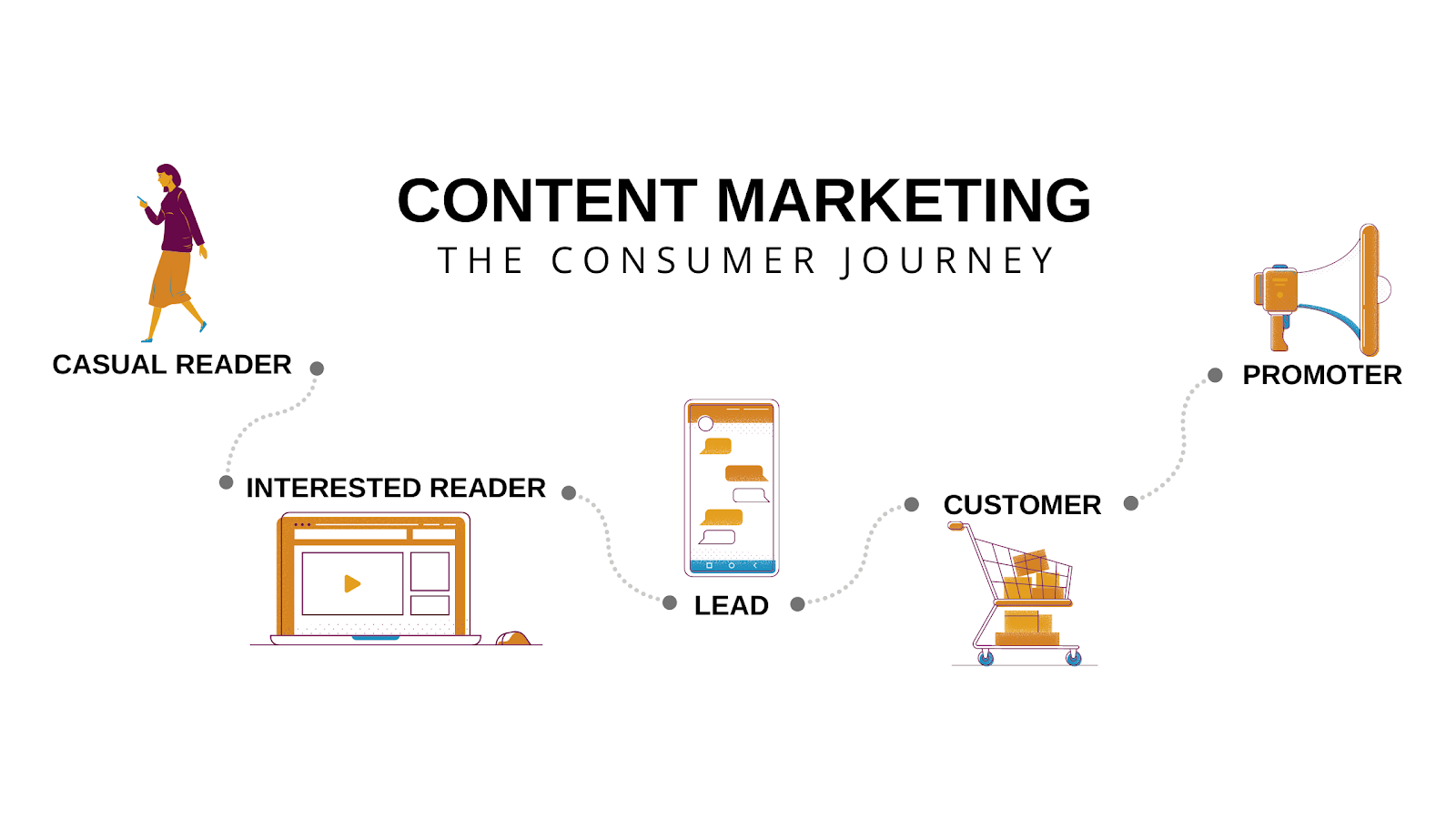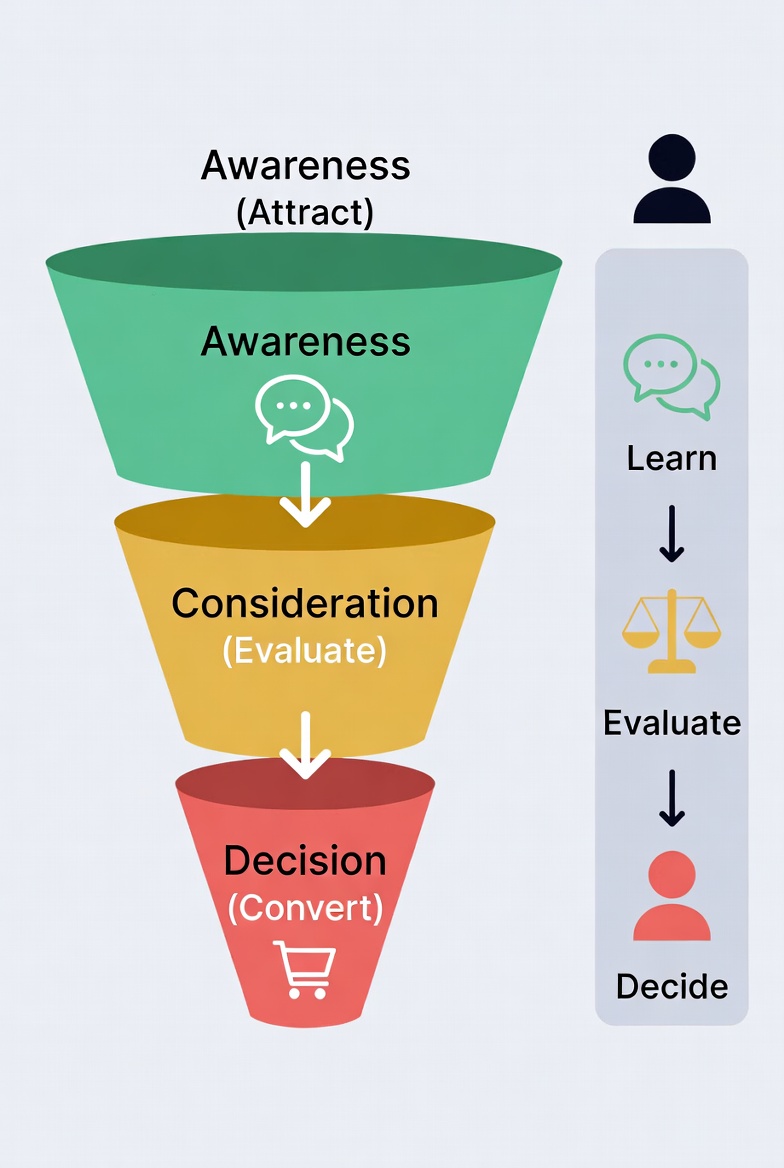
Subscribe to our newsletter!
We don't spam. You will only receive relevant and important tips for you and your business.
Unsubscribe anytime.

Content marketing includes social media, videos, newsletters, podcasts, infographics, webinars, and more.
Content marketing isn’t about your brand, products, or services. It’s about benefiting your audience and what they care about.
The goal of content marketing is to provide such good information to your readers that they become loyal customers.

A blog is worth the investment when you need to answer specific customer questions, compete for search traffic against larger competitors, or demonstrate specialized expertise that influences purchase decisions.
Blogs serve three core business functions:
Customers searching "how to choose..." or "what's the difference between..." are in research mode, and blog content ranks for these informational queries better than product pages. If your sales cycle involves customer education, blogging addresses this need.
Service-based businesses (consultants, agencies, professional services) use blogs to showcase expertise that's difficult to communicate through static website pages alone.
Blogs create ungated top-of-funnel content that can link to gated resources (templates, calculators, guides). Content marketing generates three times more leads than traditional outbound marketing while costing 62% less.
Strong blog candidates:
Weak blog candidates:
Websites with blogs have 434% more indexed pages and 97% more inbound links than those without. Each blog post creates a new indexed page targeting specific keywords, and consistent publishing signals to search engines that your site offers fresh, relevant content.
Search engines rank content based on relevance, authority, and freshness. Blogs address all three:
Your homepage targets primary keywords like "plumbing repair St. Paul." Blog posts target hundreds of long-tail variations: "my faucet has a slow drip," "how to stop a running toilet," "signs you need to replace your sewer line." These informational queries drive traffic from prospects earlier in the buying journey.
Each blog post becomes a hub linking to relevant service pages, while your service pages link back to educational content. This interconnected structure helps search engines understand your site's topical authority and distributes ranking power across pages.
High-quality blog content earns backlinks naturally. A backlink is where other websites reference your data, insights, or explanations by linking back to it. A single well-researched post can generate dozens of backlinks over time, significantly more than product or service pages.
SEO results from blogging follow a predictable pattern:
Effective blog-to-lead conversion follows a three-tier structure:
Each tier links naturally to the next level and to relevant service pages.

Track organic search traffic, time on page, and conversion actions (downloads, form submissions, contact requests originating from blog posts). Vanity metrics like total page views or social shares rarely correlate with business outcomes for small business blogs.
Organic search traffic growth. Blog success means increasing visitors from search engines over time. Track:
Use Google Analytics and Google Search Console to measure.
Engagement depth. Average time on page above 2 minutes indicates readers find content valuable. Blog posts with 1.5–3 minute average read times suggest good depth and relevance.
Also monitor:
Even if blogs don't directly generate sales, they should contribute to pipeline growth. If blog traffic grows but leads don't, content may not be aligned with business goals.
Blogging remains one of the highest-ROI marketing investments for small businesses that commit to consistency, quality, and strategic topic selection. The businesses that succeed with blogging share three characteristics:
If you cannot commit to publishing of high-quality content for at least one year, allocate resources to marketing tactics with faster payback (paid advertising, referral programs, email marketing to existing customers).
For businesses that can commit, blogging compounds over time. Blog posts published in Year 1 continue generating traffic and leads in Years 2, 3, and beyond, making it one of the few marketing investments that appreciates rather than depreciates.
Blogging, but not seeing results?